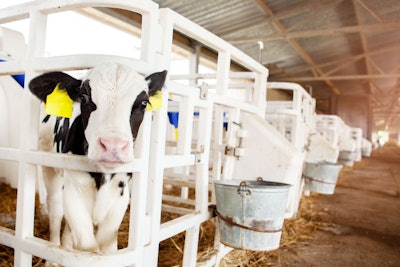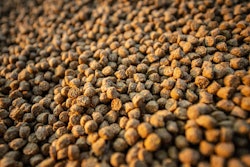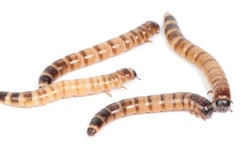
Grape seed extract supplement found to reduce inflammation and oxidative stress in calves
Grape seed extract could prove to be a useful tool for combating heat stress in livestock operations located in warmer climates, according to a series of new papers from Bursa Uludag University in Turkey.
The papers, based on a feeding trial conducted in calves, determined that providing a grape seed extract supplement according to the calves’ weight increased total dry matter consumption and improved the average daily gain during high heat conditions. The grape seed extract also decreased the respiratory rate of heat-stressed calves, decreased cortisol and improved insulin intolerance, according to the reports, published in the journal Animal Feed Science and Technology.
Grape seed extract could offer similar benefits in other species, and is potentially widely available for inclusion in livestock diets, because it can be extracted from the remains of grapes processed for wine, juice and ethanol production, according to Hakan Biricik, a professor of veterinary medicine in the Department of Animal Nutrition and Nutritional Diseases at Bursa Uludag University.
“I think it stands before us as one of the solutions that can be used in the near future against the reality of heat stress in calves,” he said.
Heat stress in cattle is known to lead to an accumulation of reactive molecules that lead to cell and tissue damage, a phenomenon called oxidative stress. Growing calves may be especially sensitive to this condition because their internal temperature regulating systems are not yet mature, Biricik said.
Grape seed extract, Biricik said, is known to have anti-inflammatory properties and to act an as antioxidant — a term for compounds thought to reduce oxidative stress by neutralizing the reactive particles that cause it. So Biricik and doctoral student Emin Ürkmez decided to test the impact of feeding grape seed extract as a supplement to Holstein calves experiencing heat stress during the suckling period — where it performed as they’d hoped, improving the calves’ overall performance.
Although the potential for grape seed extract to perform an antioxidant role in the diet was the primary theory that spurred their interest in the potential supplement, Biricik noted that their results indicate the grape seed extract also had a significant impact on inflammation-related processes in calves. They also found the grape seed extract influenced the production of leptin, a hormone that regulates appetite and weight gain.
However, he warned that livestock producers may want to hold off on experimenting with grape seed extract as a supplement for their animals until more research on the ingredient becomes available. Over the course of their study, the calves that received the highest doses of grape seed extract tended to lose — rather than gain — weight. More work is needed to determine the best dose for supplementing grape seed extract, Biricik said. The use of grape seed extract during varying degrees of heat stress must also be evaluated.
“For these reasons, I think more detailed research is needed,” he said.













